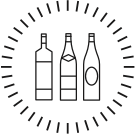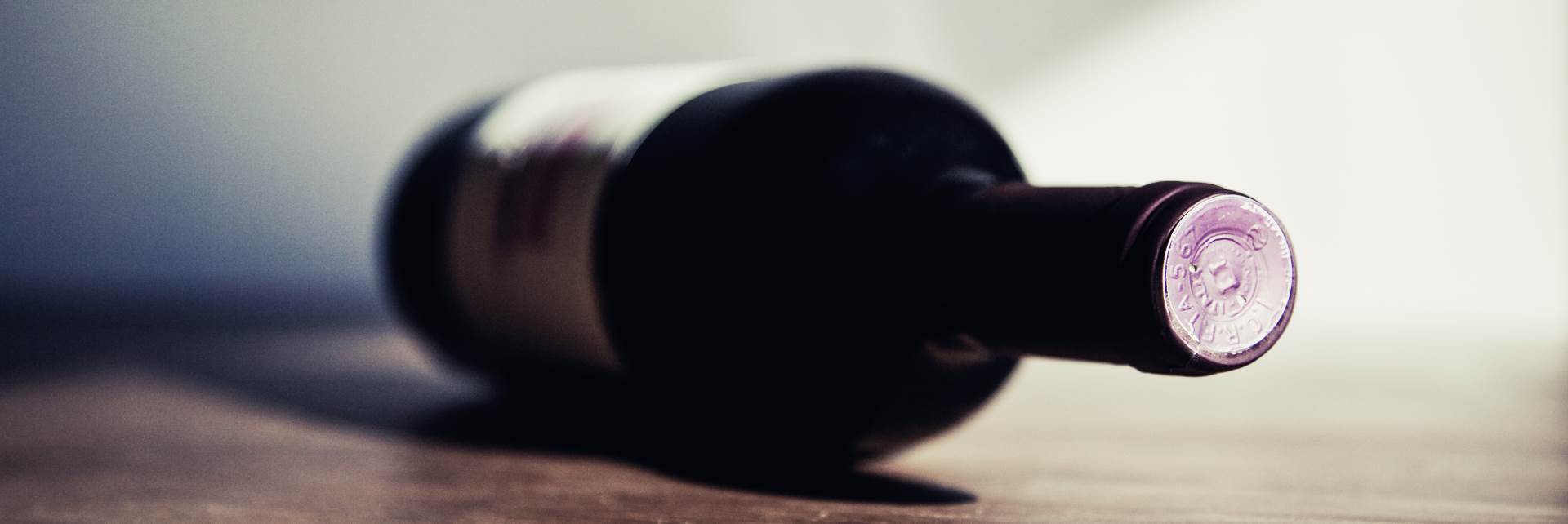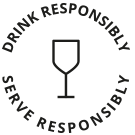TO STORE YOUR WINES
We receive many questions about storing wine. How to store your wines in the best way? All have not
a wine cellar available. Below are some tips: You can buy special wine cabinets that are very
decorative, but quite expensive. The alternative is the coldest place in the apartment / house where
the temperature does not fluctuate too much. And yes, you can store wine without a perfect cellar,
actually wine in a bottle are capable of much greater strain than previously thought.
The following parameters are for storage of wine:
TEMPERATURE
Best storage temperature is 10-14 degrees. Higher temperatures do not make the wine undrinkable at
once, but the maturation accelerated. When storage space is cooler than plus seven degrees, the
development of the wine are more being very slow. Then you have to wait long for it to become
mature. The hotter it is, the faster maturing wine. There is no scientific evidence that there is any
difference in quality between a wine that has been stored in a cellar that is 13 degrees, compared with
a wine that has been stored in a storage room that is 20 degrees. There are scientific tests show that it
is first at a temperature of 30 degrees as the risk is great that the wine deteriorates. Wine can
withstand temperature fluctuations, so there is no danger if the storage temperature is just a few
degrees in the winter and around 20 in the summer. If, however, you aim to store wine for a very long
time, perhaps 50-100 years, it can be good with a cool cellar. The optimum is a slow change between
the highest and lowest temperature. Cellar temperature as cold as 6-10 degrees is not harmful to the
wine, but it must not go down to minus degrees. If there are major differences between cold and heat
you should be aware of the corks. They may occasionally shoot out of the bottle. The main thing to
keep in mind is that cooling slows ripening and heat accelerates.
If there are major differences between cold and heat should be aware of the corks. They may
occasionally shoot out of the bottle.
LIGHT
Since wine is not like bright light, the wines should be stored in the dark. Daylight and fluorescent light
alters the wine's color to brown. The wine can also get a stale and dull taste of this. Therefore, avoid
the wine being exposed to strong light or sunshine. Many red wines are capable of being eposed to
light without problems, but many white wines can be destroyed if kept bright. Sparkling wines must be
kept in the dark. Light can create a photochemical reaction in the wine, so that B vitamin is converted
to hydrogen sulfide which smells like rotten eggs if kept bright.
HUMIDITY
It need not necessarily be damp in the cellar. Previously it was believed that the cork breathed so that
the wine ripening. Therefore it was important to have a wet and humid cellar. But a real cork is
completely sealed and will not let any oxygen go through. The development and aging of wine taking
place in the bottle is without any contact with oxygen. Or rather, the small air pocket located between
the cork and the wine will develop the wine. The humidity prevents the cork from drying, which in turn
prevents the outer oxygen from affecting the wine. The wine should be stored horizontally so that the
wine is in contact with the cork. In this way, does not dry the cork and the air does not penetrate.
Could too much moisture be harmful? Yes, too wet cellar can actually be negative. Between the
capsule and cork formed easily mold. With years can spores slowly look down through the cork, and
eventually damage the wine. Humidity should average around 70% and not less than 60% in order to
keep the cork in good condition over time. My experience says that mold can begin to grow at over
75% relative humidity for a long time.
VENTILTION
It is important with good ventilation where you store the bottles. Bad odors can penetrate through the
cork in the wine despite the closure. If keeping your wine in the refrigerator you should not have
anything there that smell, like onions or cheese.
VIBRATIONS
The wine must be kept still. One should not twist and turn on them as they do in the production of
champagne. If you turn on the bottles or move the bottles then the possible precipitation developed
could make the wine become cloudy. If a precipitate has been developed, let the bottle stand upright
for a week, and decant before serving.




